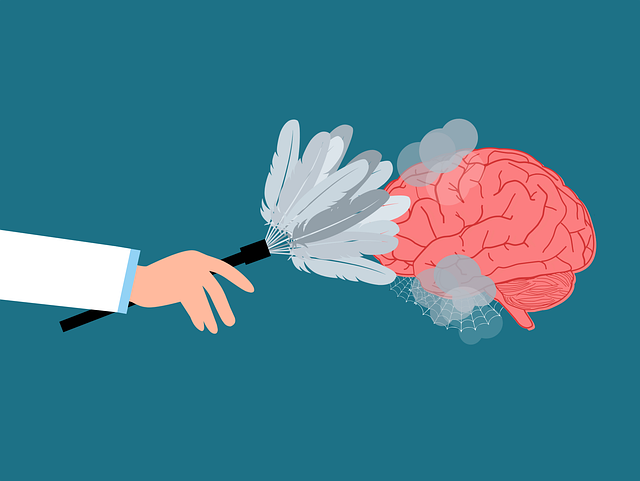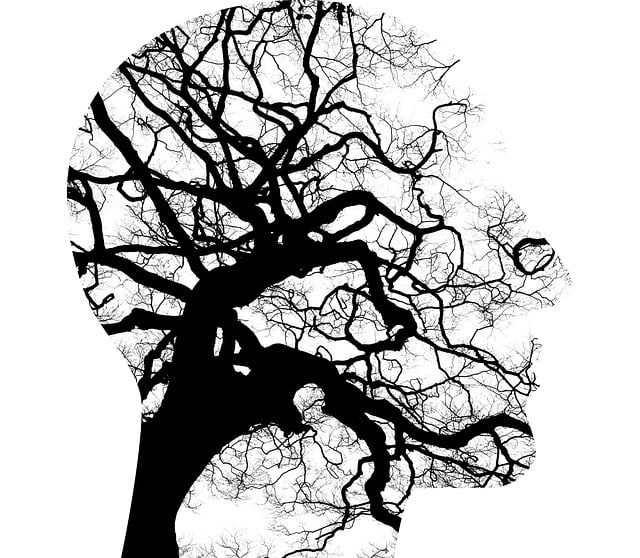The text highlights the often-overlooked emotional and psychological needs of adults facing cancer, emphasizing the need for specialized "Therapy for Adults Cancer Issues". It argues that beyond medical treatment, crisis intervention guidance and community outreach programs are crucial for managing stress, fostering emotional regulation, and promoting positive thinking. These initiatives enhance well-being, mental resilience, and active participation in treatment plans. Effective therapy programs integrate holistic models, depression prevention, support groups, and partnerships with local organizations to empower survivors post-cancer. Community engagement through education, workshops, and peer support groups also plays a pivotal role in supporting these individuals throughout their journey. Measuring impact is essential for sustaining long-term change.
Community outreach programs play a pivotal role in supporting adults facing cancer issues. This article delves into the crucial aspects of implementing these initiatives, focusing on therapy for adult cancer survivors. We explore strategies such as designing tailored therapy programs, fostering partnerships with local organizations, and engaging communities effectively. Additionally, we discuss measuring impact and sustaining long-term positive change. By understanding the need for community outreach, we can revolutionize cancer support and enhance the lives of those affected.
- Understanding the Need for Community Outreach in Adult Cancer Support
- Designing Effective Therapy Programs for Cancer Survivors
- Building Partnerships with Local Organizations
- Engaging and Educating the Community: Strategies for Success
- Measuring Impact and Sustaining Long-Term Change
Understanding the Need for Community Outreach in Adult Cancer Support

In many communities, cancer support primarily focuses on pediatric or general health initiatives, often neglecting a critical aspect: the unique needs of adults facing cancer. This gap in specialized care is particularly concerning given the emotional and psychological impact of a cancer diagnosis. Therapy for Adults Cancer Issues goes beyond medical treatment; it acknowledges that adults require tailored support to navigate the emotional turmoil associated with their diagnosis. Crisis intervention guidance plays a pivotal role in empowering individuals to manage stress, fostering emotional regulation, and promoting positive thinking—essential tools in their healing journey.
Community outreach programs designed to offer such therapy can significantly enhance patients’ well-being. By integrating these initiatives into healthcare frameworks, we ensure that adults with cancer receive holistic care. This approach not only improves their mental resilience but also encourages them to actively participate in their treatment plans. Ultimately, recognizing and addressing the psychological dimensions of cancer fosters a sense of community support, enabling individuals to confront this challenging phase with renewed hope and strength.
Designing Effective Therapy Programs for Cancer Survivors

Designing effective therapy programs for adult cancer survivors requires a nuanced approach that addresses not just physical health but also the complex emotional landscape they navigate post-diagnosis. Many survivors face long-term effects from treatment, including fatigue, pain, and cognitive changes, which can significantly impact their daily lives and mental well-being. Incorporating holistic therapy models that integrate physical activity, mindfulness practices, and support groups has proven beneficial in enhancing emotional regulation and promoting healing.
Cancer survivorship programs should offer specialized crisis intervention guidance tailored to the unique challenges survivors face, focusing on depression prevention. These interventions should foster a sense of community among participants, enabling them to share experiences, build resilience, and develop coping strategies for managing anxiety and stress. By prioritizing both physical and emotional recovery, these programs aim to empower survivors to live fulfilling lives beyond cancer.
Building Partnerships with Local Organizations

Building partnerships with local organizations is a strategic move to enhance community outreach programs focused on adult cancer issues. Collaborating with established entities, such as hospitals, support groups, and mental health clinics, allows for a multifaceted approach in addressing the complex needs of those affected by cancer. These partnerships can facilitate the integration of various services, including therapy for adults dealing with cancer-related stress and mood management challenges. By pooling resources and expertise, organizations can co-create comprehensive programs that cater to both physical and mental wellness.
For instance, a local mental wellness podcast series production in collaboration with support groups can provide valuable content on self-care routine development for better mental health. Such initiatives not only empower individuals with knowledge but also foster a sense of community among those facing similar cancer issues. This holistic approach ensures that the burden of care is shared, enabling more effective and sustainable support for all involved.
Engaging and Educating the Community: Strategies for Success

Engaging and educating the community about cancer issues is a powerful strategy for support and survival. Effective outreach programs should aim to break down complex medical information into understandable, accessible language tailored to diverse audiences. This can include interactive workshops, informational sessions, or peer-to-peer support groups that facilitate open dialogue and address specific concerns related to adult cancer. By incorporating elements of self-esteem improvement, stress management, and emotional healing processes, these programs foster a sense of community and empowerment among participants.
Utilizing creative approaches like storytelling, artistic expressions, and technology can make cancer education more engaging and memorable. Tailoring programs to meet the unique needs of different demographic groups ensures relevance and effectiveness. Building trust through transparent communication and fostering an inclusive environment where individuals feel safe to ask questions and share experiences is paramount for successful community outreach in cancer support.
Measuring Impact and Sustaining Long-Term Change

Measuring the impact of community outreach programs is vital to ensure their effectiveness and ability to bring about long-term change. In the context of cancer support, these initiatives often aim to improve access to care, raise awareness, and provide emotional therapy for adults facing cancer issues. By employing robust evaluation methods, organizations can assess how their programs contribute to enhanced mental health outcomes and overall well-being among participants. This includes tracking improvements in symptoms, mood, and coping mechanisms using standardized tools and qualitative feedback from beneficiaries.
Sustaining long-term change requires a strategic approach that goes beyond immediate program impact. Effective risk management planning for mental health professionals is essential to address potential challenges. Burnout prevention strategies for healthcare providers should be implemented to ensure the resilience of those delivering these services. Additionally, conflict resolution techniques can help navigate challenges within the community, fostering collaboration and ensuring programs remain focused on their intended goals, ultimately leading to a healthier and more supportive environment for cancer patients and caregivers.
Implementing community outreach programs focused on therapy for adults with cancer issues proves invaluable in enhancing support networks and improving patient outcomes. By fostering partnerships, engaging local organizations, and employing effective education strategies, these initiatives can create lasting change. Measuring impact is crucial to sustaining these efforts, ensuring resources are allocated where they matter most—empowering individuals affected by cancer within their communities.










